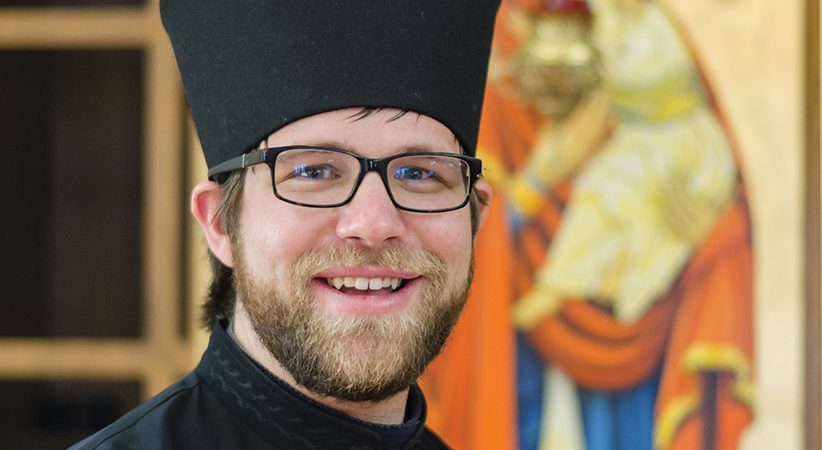Preparing for Christmas
Now is the time to examine areas in our lives we need to change
Father Deacon Basil Ryan Balke Comments Off on Preparing for Christmas
As the time approaches for the great feast of the Nativity, it is good to spend some time reflecting in preparation. The Church, both East and West, understands that people take a long time to make changes. Many of us have been working on changing the same aspects of ourselves for decades.
This is the beautifully practical reason why the Church gives us seasons of preparation such as Advent: to help us toward true healing and wholeness.
While the Roman Church begins the fast of Advent on Dec. 2, the Byzantine churches begin preparing on Nov. 15, the day just after the feast of St. Philip (Nov. 14 in the East). This gives us 40 days of preparation before Christmas.
Throughout each of the four fast seasons, the Byzantine Churches pray a penitential prayer called the Prayer of St. Ephraim:
“Lord and Master of my life, spare me from the spirit of indifference, despair, lust for power and idle chatter. Instead, bestow on me, your servant, the spirit of integrity, humility, patience and love. Yes, O Lord and King, let me see my own sins, and not judge my brothers and sisters, for you are blessed forever and ever. Amen.”
It is important for all of us as deacons to spend some time preparing for Christmas by examining the areas we need to change in our lives, and particularly in our ministry as deacons. One way of doing this is through the lens of St. Ephraim’s prayer.
The prayer asks that God spare us from four vices in particular — the spirit of indifference, despair, lust for power, and idle chatter — and then also that he bestow on us the remedies for these vices: the spirit of integrity, humility, patience and love.
The spirit of indifference, also translated as “sloth,” typically is seen in conjunction with discouragement, and it makes sense: We stop caring because we are discouraged by the results (or lack of results) from our caring actions in the past. Maybe it’s the Bible study for which we spent long hours preparing and only one parishioner shows. Or the couple whom we prepared for marriage ends up divorcing. Do we choose in these moments to see the will of God outside of our expectations and to continue to pursue his will, or do we focus on our disappointment and shut down into apathy?
Next, we ask to be spared of the spirit of despair. In other translations of the prayer, despair is translated from the Greek term “acedia,” which is one of the classic monastic sins. Acedia is despondency, or a despair that begins first with an interior instability and a hatred for prayer, labor and one’s superior. In more popular terms, it is the spirit of burnout, be it in ministry, prayer or family life. In what areas am I burned out, restless or despairing?
|
Like what you’re reading? Subscribe now.
|
The last two — lust for power and idle chatter — directly are connected to the sin of vainglory, or a desire for the esteem of others. Do I long for the power that a ministerial position can give me because I want to be seen as such in the eyes of others? Do I fall into useless chatter and pointless words so as to seem substantial in the eyes of those around me, rather than speaking words of purpose to love and glorify God?
From here, we must move forward in asking God to heal the specific ways we are ill with these vices and to grant us the remedies of integrity, humility, patience and love. How can these virtues address my faults and temptations so that I can be healed and whole? How can I apply them to my ministry as a deacon?
What an opportunity for healing we have been given in this Nativity fast.
Christos Razdajetsja! Slavite jeho!
Christ is born! Glorify him!
FATHER DEACON BASIL RYAN BALKE is a Byzantine deacon, licensed professional counselor, director of Mount Tabor Counseling (mounttaborcounseling.com) and one of the hosts of the Catholic Psyche Podcast (catholicpsyche.com).



